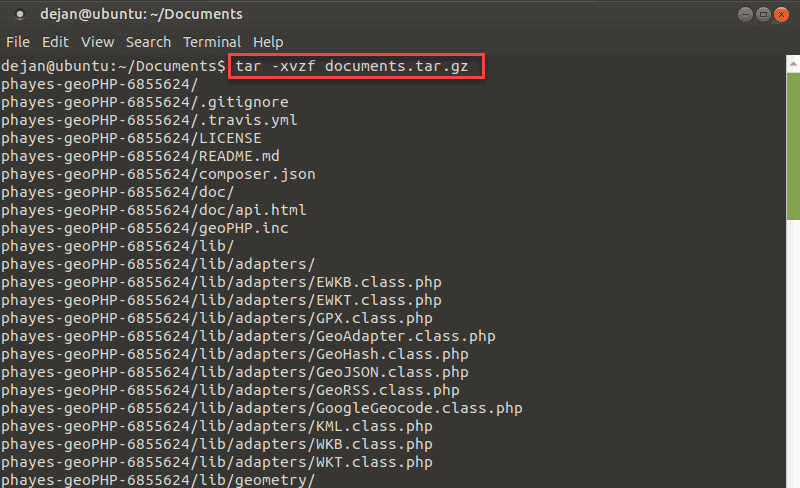

#UNTAR TAR GZ ARCHIVE#

Windows users will need a tool named 7zip to extract tar. gz file simply right-click on the file you want to extract and select “Extract”. Right-click and select “Send To” > Choose “Compressed (Zipped) Folder.” How do I untar a.Hold down on your keyboard > Click on each file you wish to combine into a zipped file.Use “Windows Explorer” or “My Computer” (“File Explorer” on Windows 10) to locate the files you wish to zip.The bz2 is another popular compression format where tar can be. In the following example, we extract the tar.gz file. The tar files can be compressed with the gzip as gz format. -f : Finally the path of the desire file/directory to compress. A tar file can be untared or extracted with the following command.-v : To display the progress while creating the file.-c : Stand for create file (output tar.-z : Compress the desired file/directory using gzip.
#UNTAR TAR GZ HOW TO#
How to compress a whole directory (including subdirectories) using TAR in Unix based OS with the CLI gz file, use the tar -czf command, followed by the archive name and files you want to add.

Gz file is a Tar archive compressed with Gzip. The parameters after the -zcvf flag are the compressed file name and the original folder to compress, respectively.

extracted to a directory where the folder name matches that of the file (mostly in ‘file-1.0’ in the current location). You must also use tar as a command for uncompressing the bzip2 file. Let’s have a look at how to use tar -z to compress an entire directory in Linux. How Do I Untar A Tar File You should use the command prompt tar: xzf - to uncompress the gzip (.) tar Yjf file. untar is used to refer to extracting the entire contents of a tar archive.
#UNTAR TAR GZ INSTALL#
In order to compress a folder, tar + gzip (which is basically tar -z ) is used. Install the gz package and use the gz - filename command to uncompress it.
#UNTAR TAR GZ DOWNLOAD#
In python to uncompress a tar file, a solution is to use the tarfile module: import tarfile fname = "" if fname.endswith("tar.gz"): tar = tarfile.open(fname, "r:gz") tar.extractall() tar.close() elif fname.endswith("tar"): tar = tarfile.open(fname, "r:") tar.extractall() tar.close() A case studyįor a project (that can be found here on Github), I wanted to download a compressed file from an url address and uncompress it on my local machine using python:ĭownload the compressed file ('modis_c6_') from the following url address: import urllib.request url = '' downloaded_filename = 'modis_c6_' (url, downloaded_filename)Īnd uncompress it import tarfile fname = 'modis_c6_' if fname.endswith("tar.gz"): tar = tarfile.open(fname, "r:gz") tar.extractall() tar.close() References Let's consider a compressed file called for example.


 0 kommentar(er)
0 kommentar(er)
